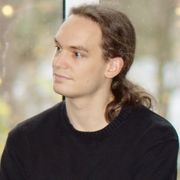Talk "FOSS im Umfeld des neuen Personalausweis" together with Frank Morgner, Friday, 13.05.2011, Room Berlin II, 3:00 - 4:00 p.m: Both opponents as well as supporters of the new German ID card (nPA), which is available since November 2011, profit from free supportive software, since they provide more transparency. The talk presents tools Humbold University, Berlin, Germany, implemented for application tests. The OpenPACE library implements basic cryptographic protocols. The authors implemented CLI tools like "npa-toll" on top of it. To Dominik's Talk
Backstage with Dominik
Dominik, how are you personally involved in OpenPACE? How come?
Frank and I are currently the only developers of OpenPACE. We founded the project in 2009, when we started to learn about the new German ID card (nPA). Our objective was to finde out more about the used cryptographic protocols and to develop a free implementation of them. We used OpenSSL as a basis for that. Earlier we published the result of our research in the context of a virtual smartcard architecture. I think it is important that other people profit from my work and are able to carry on what I started. Unfortunately that is not the default case in University.
What is your impression of the sense for computer security issues of your fellow students at Humbold Universität Berlin?
There are all types: Many students are just annoyed by the security subject - they deal quite negligent with it. On the other hand we often experience a rush of students at lectures, eager to learn more about the subject. Those students use already a lot of security software like encryption of email or hard drives.
You are working as a tutor at the institute for Computer Science, Dept. System Architcture at HU Berlin. To envisage that, how does a typical day in our life look like?
I am PhD student at the Graduiertenkolleg METRIK. Currently I use most of my time scanning through and reading recent research papers about the subject. I am required to to prepare the mandatory reports in academia. I also help to prepare materials for seminars and lectures. Unfortunately I can't spend as much time on OpenPACE as I'd like to, thus I do most of the development in my spare time.
What made you to sumbit a proposal for a talk at LinuxTag 2011?
I hope to inspire other users to deal with the new ID card, to challenge its technology and to develop tools for it. When the electronic passport was released, quite a few projects like OpenMRTD or JMRTD existed to analyse its features. They made some very insightful discoveries about its security measures. There are currently not many free projects for the nPA. I hope that will change in the future. OpenPACE is the building block for that.
Dominik's Data Sheet
Place of living: Berlin
Age: 27
Favourite programming language(s): C and Python
Favourite FOSS operating system flavour(s): I like to check out different distros and don't believe in the one-and-only operating system. Currently I use Ubuntu, but consider to change to Arch Linux.
My day is perfect, if ... ... I learn something new, am able to apply it successfully, and open up a beer with friends at the end of the day.
Someone from the non-tech world asks me, what the hell is this FOSS stuff all about. My answer in three sentences: FOSS is for Free and Open Source Software. Its source code is available and everybody is free to use, distribute, and change it. FOSS allows users to find out about how it works, to adapt it to personal needs and to pass the modifications to others. The success of the free operating system Linux proves the potential of this model in an impressive way.

